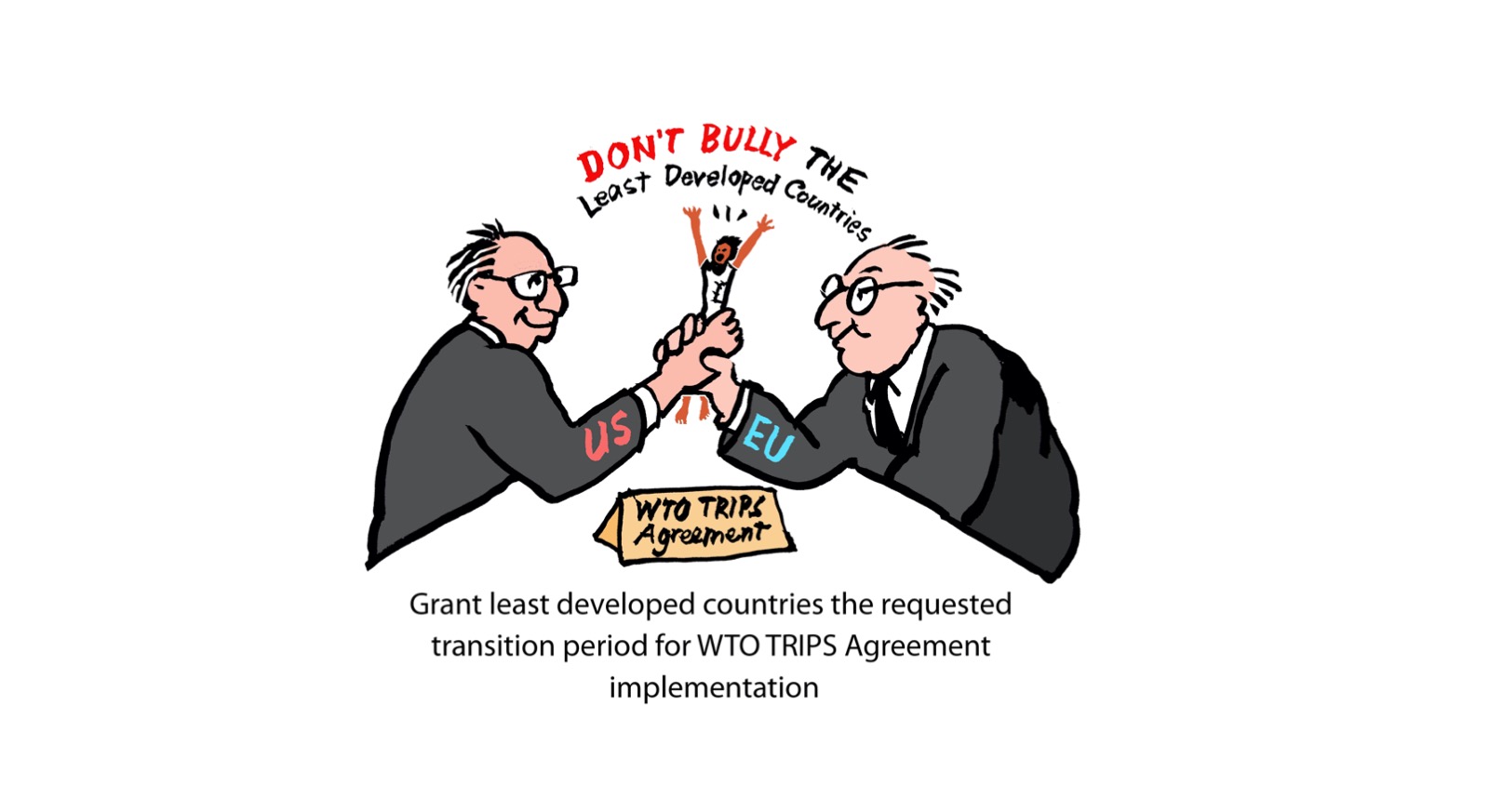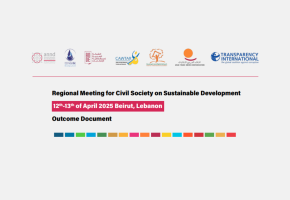
CSOs Call on the USTR and the European Commission to Support Least Developed Countries’ Request on Extension of TRIPS Transition Period
Open Letter: CSOs Call on the USTR and the European Commission to Support Least Developed Countries’ Request on Extension of TRIPS Transition Period
23 June 2021
Ambassador Dagfinn Sørli,
Chair of Council for TRIPS, WTO
Ambassador Katherine Tai,
United States Trade Representative
Commissioner Valdis Dombrovskis
European Commission
Dear Ambassador Sørli, Ambassador Tai and Commissioner Dombrovskis,
We the undersigned are very concerned that once again the duly motivated request of Least Developed Countries (LDCs) to the TRIPS Council of the World Trade Organization to extend the Transition Period is facing obstacles.
With the Transition Period expiring on 1 July 2021, and with LDCs suffering disproportionately in the midst of the COVID-19 pandemic, we view with alarm the attempts to weaken and undermine the LDC request (IP/C/W/668) and the lack of progress so far.
According to UNCTAD’s LDC Report 2020, LDCs are now facing the worst economic crisis seen in the past 30 years as a result of COVID-19, and expected to see falling income levels, widespread employment losses and widening fiscal deficits. At least 50% of the world’s extremely poor live in LDCs, and the current COVID-19 crisis is estimated to have pushed at least 32 million more people into poverty in 2020. The report informs that “at least 43 out of the 47 LDCs will likely experience a fall in their average income” and that “the current account deficit of LDCs is forecast to widen from $41 billion (or 3.8% of their collective GDP) in 2019 to $61 billion (or 5.6% of their GDP) in 2020, the highest value ever”. 1
Shockingly the 2021 Financing for Sustainable Development Report of the UN Inter-agency Task Force on Financing for Development has found that “COVID-19 could lead to a lost decade for development - one most pronounced in the Least Developed Countries (LDCs)”.
The situation of LDCs is therefore extremely alarming. At this moment LDCs need maximum policy flexibility. Even before the COVID-19 crisis LDCs faced severe constraints, such as limited availability of skilled labour, productive capacities, access to secondary education, electricity, and internet access. The basic conditions to benefit from full TRIPS implementation are mostly absent in LDCs. They also lack affordable access to knowledge-based goods crucial for sustainable development such as access to health products including for COVID-19 such as ventilators, educational materials, green technologies.
COVID-19 has worsened the situation. Even the limited progress made towards Sustainable Development Goals are expected to be reversed. According to the latest UN study of April 2021, “The COVID-19 pandemic not only threatens to throw LDCs back many years in achieving SDGs on poverty, hunger, health and education, but it also exacerbates inequalities, further jeopardizing the achievement of SDG5 on gender equality and women’s empowerment and SDG10 on reducing inequalities.” 2
It also stresses that the “financial situation in LDCs has become more challenging, with a fall in FDI and remittances, and almost half of LDCs are at high risk of, or already in, debt distress. Limited fiscal space has meant that the fiscal response to the pandemic of most LDCs has been inadequate”.
In such a situation, how can the WTO’s TRIPS Council, and especially the United States and the European Union continue bullying the LDCs. It is absolutely unconscionable, especially given the fact that Article 66.1 grants LDCs an automatic right to transition period following a duly motivated request by LDCs for it states the “Council for TRIPS shall, upon duly motivated request by a least-developed country Member, accord extensions of this period.”
Therefore, it is appalling that more than 8 months since the request was made, at a time of unprecedented global crisis, with the most vulnerable bearing the worst impact, the WTO TRIPS Council has yet to grant the LDCs’ request.
Short transition periods granted in the past have proven to be inadequate. And it is clear, now more than ever, that LDCs will require the transition period post-graduation as the exceptional developmental challenges LDCs are facing will continue even after graduation.
We also recall that the international community through UN resolutions 59/209 of 20 December 2004 and 67/221 of 21 December 2012, have called for the continuation of existing special and differential measures post-graduation.
We call on the United States and the European Union to urgently and unequivocally support the LDCs’ request and for the WTO TRIPS Council to adopt the proposed decision text in IP/C/W/668.
cc. David Bisbee
Charge d'affairs a.i.
U.S. Mission to the World Trade Organization
cc: Mr. João Aguiar Machado
Ambassador, Permanent Representative of the European Union to the WTO
Recent publications

ANND Newsletter - March Issue: Financing for Development: Between Transparency and Global Challenges
